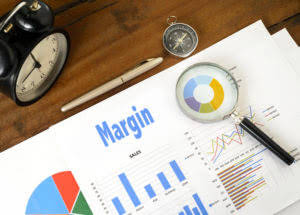A spiked cider for the holidays probably won’t do too much to dehydrate you — but it could be a completely different story with hard liquor like whiskey, brandy, and vodka. Some can be tricky — like high-quality wines with a higher alcohol by volume than low-quality wines. There’s less air pressure, so alcohol enters your bloodstream even more rapidly. If you’re drinking at altitude, you should probably start out with less alcohol than usual.
- It is recommended to have at least one 16-ounce glass of water for every 12-ounce beer.
- Even if you aren’t super tired, it’s probably a good idea to take it easy.
- This can lead to changes in cell volume and function, potentially impacting overall hydration levels.
- When we drink alcohol, it gets absorbed into our bloodstream through our stomach but mostly through our small intestines.
- So, if you find yourself needing to use the restroom more often after drinking alcohol, it’s because alcohol is increasing your urine output.
Beer Dehydration: How Much Fluid Does Beer Remove?
Some studies suggest that low-alcohol beers may have a negligible diuretic effect and can be effectively used for hydration, similar to water. Ginger beer, which contains no ABV or added yeast, is another option that may result in less dehydration due to the absence of diuretic properties. However, it is important to note that stronger beers with higher alcohol content are more likely to cause dehydration. Different types of alcohol have varying effects on the body’s hydration levels. Generally speaking, the higher the alcohol content of a drink, the more dehydrating it will be.
Symptoms of dehydration
These products contain electrolytes, potassium, sodium, and chloride – all of which your body loses with higher urine output. When drinking alcohol, especially in hot weather, avoiding dehydration is very important. That margarita may seem refreshing but the added sugar creates an acidic environment in your body.
But if you insist on having a drink or two, there are things you can do to mitigate the dehydrating effects of alcohol. Remember that list of things that makes alcohol-related dehydration worse? It can also cause muscle cramps due to an imbalance of electrolytes in the body, such as sodium, potassium, and magnesium, which are essential for proper muscle function. The frequency and duration of drinking can also impact the dehydrating effects of alcohol. A small amount of beer will not lead to severe dehydration, but we should not drink beer to rehydrate.
Hydration Supplements to Combat Alcohol Dehydration
- Alcohol irritates the lining of the stomach, triggering the body’s natural defense mechanism to expel the substance.
- One of the most common pieces of advice given during a night out is to drink plenty of water to avoid a headache the next day.
- She has a passion for healthy, nutrient-dense, great-tasting food and for being outdoors as much as possible — she can often be found running or hiking, and has completed a marathon in every state.
- The best way to ensure proper hydration is to drink plenty of water.
- The key to making sure a night out doesn’t turn into a head-pounding hangover is to drink plenty of water throughout, Mieses Malchuk says.
- Beer is mostly water, with alcohol content typically ranging from 2% to 6% ABV (Alcohol by Volume).
When you consume alcohol, it suppresses the release of vasopressin, an antidiuretic hormone. This suppression results in the kidneys excreting more water than usual, causing dehydration. The more you drink, the more pronounced this effect becomes, which can explain why you might wake up with a dry mouth and a headache after a night of heavy drinking. Beer is mostly water, with alcohol content typically ranging from 2% to 6% ABV (Alcohol by Volume). However, alcohol is a diuretic, which means it increases urine output. As a result, drinking beer can lead to dehydration if not properly managed.
How to Rehydrate After Drinking
Whether you’re looking to build muscle, increase endurance, or speed up recovery, natural supplements can provide the support your body needs without artificial additives or harmful chemicals. This guide will break down the best high-quality workout supplements, helping you choose the right options for pre-workout energy, post-workout recovery, and overall athletic performance. The industrialization of farming and food sourcing has brought a lot of benefits to our world.
When the human body senses it is getting dehydrated, the pituitary gland produces ADH to reduce urination. Although alcohol has no health benefits, many people enjoy drinking beer, wine, or other alcoholic beverages, and there are several ways you can minimize or avoid alcohol dehydration. Yes, alcohol has a diuretic effect, which means that consuming alcohol increases urine production and leads to fluid loss and dehydration. When we consume alcohol, it acts as a diuretic, increasing urine production and causing us to lose fluids.
The diuretic effect of alcohol is due to its suppression of the antidiuretic hormone vasopressin, which normally causes the kidneys to retain http://spabogema.ru/facials/neozhidannaya-pravda-o-brake-dvoyurodnyh-bratev-i-sester.html water. When this mechanism is inhibited, the body loses water more rapidly, leading to dehydration. This is exacerbated when drinking on an empty stomach or without adequate water intake.
How to Hydrate After Drinking
That will increase your ability to reabsorb water, and leave you more likely to wake up feeling sparkling and ready to face the day — or at least less inclined to put a pillow over your head. Binge drinking is when a person consumes an excessive amount of alcohol within a short period of time. This equates http://uqu-sa.net/special-makeup-effects-for-stage-and-screen/distinctions-of-ancestry to drinking five or more drinks within 2 hours for males and four or more drinks within 2 hours for females. According to the CDC, drinking alcohol in moderation is safe for most people. A moderate amount equates to one glass of alcohol or less per day for females and two glasses of alcohol or less per day for males.
Alcohol’s impact on memory and consciousness is based on its effect on the hippocampus, the part of the brain that controls memory and learning. While alcohol can initially boost your mood, these effects are temporary and wear off quickly. Alcohol impairs the brain’s ability to regulate emotions, and mood changes are common. As the night wears on, you may notice your cheerful feelings soon begin to shift to irritability, sadness, aggression, or anxiety. This article discusses everything you need to know about the short-term effects of alcohol. Drinking a lot of low-alcohol drinks can also add up to a very thirsty evening, though.



